Books of 2019
December 31, 2019
Although often finding myself scribbling notes and thoughts while reading, I have never quite managed to make it second nature. This despite the fact that doing so increased both my understanding and subsequent retention; as well as nudged me towards critically examining the actual content. As such, inspired by Mortimer J. Adler’s How to Read a Book, and with Goodread’s annual Reading Challenge in mind, this is my attempt of trying to read more books in a more deliberate manner.
This page is not a collection of reviews—nor is the inclusion of a book necessarily a recommendation. I will instead be holding myself accountable by writing a paragraph or three summarising each title I read throughout 2019 and, where appropriate, offer my own thoughts. If you would like to discuss a particular title, or have any recommendations, please feel free to reach out.
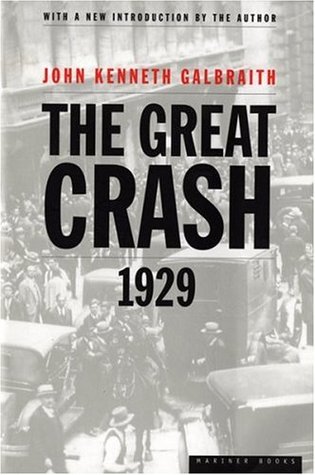
The Great Crash 1929 by the late John Kenneth Galbraith is a meticulous account of the events foreshadowing the infamous stock market crash of 1929. Galbraith critically examines the preceding years, identifying the causes and telltale signs which in hindsight should—had investors, bankers, and politicians not collectively been blinded by pure and widespread optimism—have been grounds for major concern. It is the story of rampant, loss-of-reality speculation driven by brazenly raw, penetrating human greed which left everyone wounded for years. It is hard not to compare the crash of 1929 to the global financial crisis of 2007-2008, though a major difference is how the latter was spearheaded by banksters and left the common man licking his wounds for years to come—all the while banksters collected massive bonuses. In the 30s, the return to reality left no winners. Similarly, one can draw parallels between the events transpiring nearly a century ago to yesteryear’s cryptocurrency mania. Indeed, those still holding their bags of virtual currencies and tokens will recognise the seemingly endless, downward trend splattered with continued calls for consolidation, final bottoms, and soon-to-be upwards trends. Perhaps the key to understanding a market is merely to understand and—more importantly—recognise human greed? 240 pages.
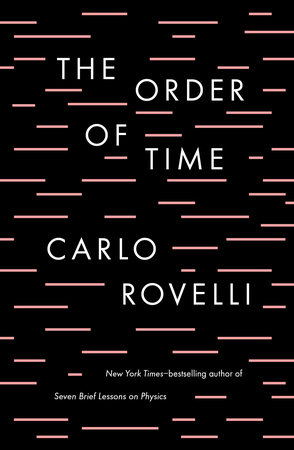
The Order of Time by Carlo Rovelli explores and defines the notion of time. Rovelli stupendously dismantles the meaning of time by illuminating numerous grave misconceptions of the concept before passionately taking the reader on an eye-opening and, in the end, consoling journey towards discovering the true nature of time. We understand the world by studying change. Yet, there is no such thing as a universal, objective now—and both the past and future wholly depend on the elusive here and there. Our understanding of time comes from that of Newton who considered time absolute, true, mathematical, and as running independently. However, as shown by Einstein, time and space—that is, the gravitational field—are real phenomena no different from other substances in the universe. A fact which not only violates our archaic notion of time, but also means that time, too, must have quantum properties. Rovelli challenges the reader page by page as the inherent ubiquitousness of time means every conclusion ripples through what we hold dear—including the very perception of ourselves and our identity. 224 pages.
We see a coherent world that we extrapolate from our interaction with the universe, organized in simplistic terms that our devastatingly stupid brain is capable of handling. — Carlo Rovelli in The Order of Time.
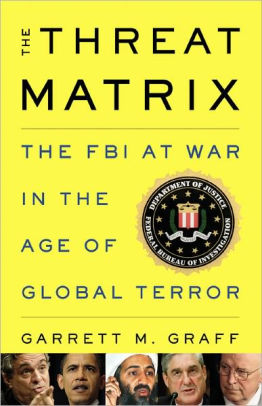
The Threat Matrix: The FBI at War in the Age of Global Terror by Garrett M. Graff is both a conscientious account of the history of the Federal Bureau of Investigation and the closest we currently have of a biography of Robert Swan Mueller III. The first many chapters cover FBI’s (re)incarnation as spearheaded by Edgar J. Hoover from 1924 and through its ruthless transformation into a serious crime-fighting powerhouse to Hoover’s unexpected passing in 1972. The next chapters are dedicated to the many tumultuous years which followed under both Presidents Nixon, Ford, Carter, and Reagan before the Bureau, finally, stabilised under Presidents Bush and Clinton with Louis Freeh at the wheel. Having covered most of the Bureau’s history, Graff turns his attention to more recent events; namely the reach and determination of Islamic terrorism leading up to 9/11 which the Bureau ruefully underestimated. A week before the calamitous event, Mueller was appointed FBI Director—a position he would go on to hold for the subsequent twelve years. We follow the rise of global terrorism and Mueller’s Bureau rush to not only come to grasps with what just happened, but also catch up to a world which, seemingly without anyone realising, had moved past it. Massive and drastic bureaucratic changes in conjunction with equally massive investments into infrastructure and processes were both desperately needed and immediately launched. As to underscore the sheer scope of these changes, Graff notes that many were still undergoing at the time of publication—and likely remain so.
However, as interesting as the history of the FBI is, the main reason I purchased this book was to attain some sort of insight into the man appointed Special Counsel of the United States. Indeed, whilst Graff’s work can hardly be considered a biography, reading it leaves no doubt that whatever can be uncovered will be uncovered and prosecuted to the fullest extent of the law in accordance with any by-the-book investigation of the highest caliber. 673 pages.
Where, I ask, is the justice? — Robert Mueller in a letter written to Scottish minister Kenny MacAskill following Scotland’s decision to release Al Megraki, the only person ever convicted in the 1988 Pan Am 103 bombing.

The View from Flyover Country: Dispatches from the Forgotten America is a collection of brilliant essays written by anthropologist Sarah Kendzior through her years at Al Jazeera. The essays all concern the post-employment economy of the United States in which, Kendzior stresses, a majority of its citizens are working (struggling) simply to earn the prospect of making money. Stunningly, and as to merely underscore Kendzior’s point even further, 2016-2018 data reveals how three Americans hold more wealth than the bottom 50% of Americans. Indeed, as Kendzior argues, a false meritocracy breeds mediocrity. A reality in which at the end of a long, thankless day, the American worker can return home to watch rich people discuss whether poverty matters, white people whether race matters, and men why gender matters, all whilst wondering where their future went. If it was ever even there. Ultimately, credentialism is nothing but economic discrimination cleverly disguised as opportunity. And economic discrimination itself is often not even visible in the first place—nor are the people it leaves behind. And it is disturbing. It is disturbing because it is true and because real people are suffering. Understanding this unpleasant reality, I reckon, is key to understanding the current political reality of the United States. The View from Flyover Country is a thought provoking must-read. 256 pages.
Poverty is not a character flaw. > Poverty is not emblematic of intelligence. > Poverty is lost potential, unheard contributions, silenced voices.
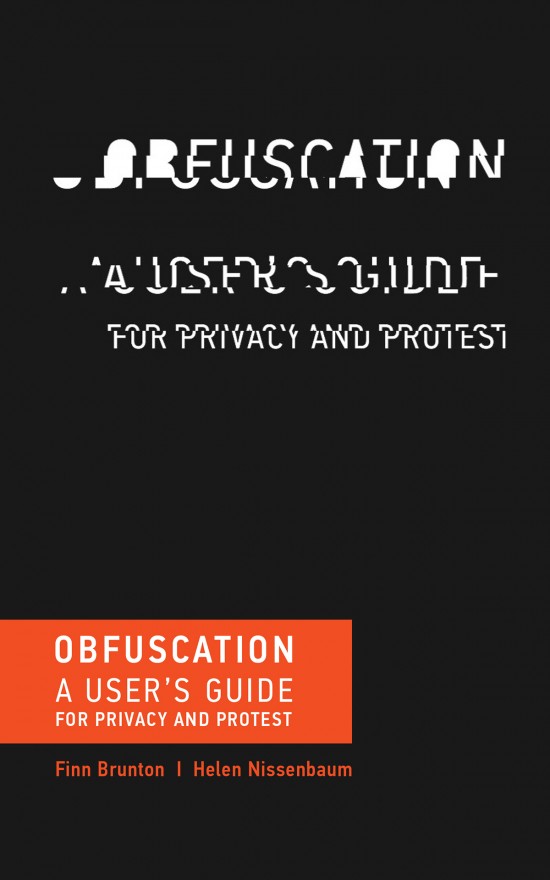
Obfuscation: A User’s Guide for Privacy and Protest. Admittedly, I purchased this book several years ago and never really got around to reading it before now. This might have been a mistake because it is plausible that it would have felt more relevant had I actually read it at time of purchase (which somewhat coincided with Edward Snowden’s courageous whistleblowing). Indeed, whilst Finn Brunton and Helen Nissenbaum acutely discuss the fast-eroding notion of online privacy, they do so in a manner which, effectively, drowns the reader in what feels like a bombardment of anecdotes. In many ways, I felt as though I was reading a manifest more so than a guide on how to counter pervasive digital surveillance as otherwise promised by the title. Yet, this would not even have been problematic had the manifest been clear and concise. Instead, it ended up being a rather frustrating process reading through the many pages; despite the few, very good bits scattered throughout. 144 pages.

The ISIS Hostage: One Man’s True Story of Thirteen Months in Captivity is a genuinely harrowing account of the Danish photographer Daniel Rye who was captured by ISIS mere days into what was meant to be a brief, explorative trip near the Syrian border. He was subsequently held hostage for a gruelling thirteen long months before eventually being released, shortly before the caliphate fell. Due to the Danish government’s zero-tolerance on paying terrorists, Rye’s family faced an enormous financial challenge at home, having to raise what ultimately amounted to three million euros. This is the story of hope and resilience in the face of brutal fanaticism as well as the true importance of the few, fleeting moments of feeling human under such circumstances. Puk Damsgård attentively does Daniel and his story justice; and it is a story which needs to be told. 352 pages.
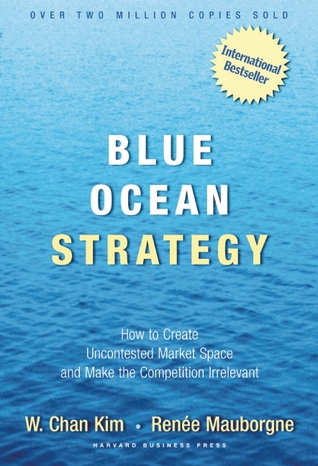
Blue Ocean Strategy: How to Create Uncontested Market Space and Make the Competition Irrelevant is without a doubt one of the most influential and popularised business strategies. Originally published in 2004, the the fundamental idea presented by Kim and Mauborgne is to stop fighting the competition in what ultimately amounts to an overcrowded race-to-the-bottom dominated by cut-throat discounts and endless promotions—what the authors now famously refer to as a red ocean. Instead, they suggest, companies ought to move themselves into a blue, non-contested ocean in order to flourish. Or, rather, companies create such an ocean through value innovation (i.e. decrease costs whilst increasing buyer value by aligning innovation with utility). If done correctly, companies will establish a competitive advantage and substantial lead even as the ocean gets bloody from unavoidable competition. At the end of the day, the underlying message is that by creating actual value for customers, value is created for the company. If a company is unable to offer additional value to customers, it is bound for the slaughterhou-… erh, red ocean. 320 pages.
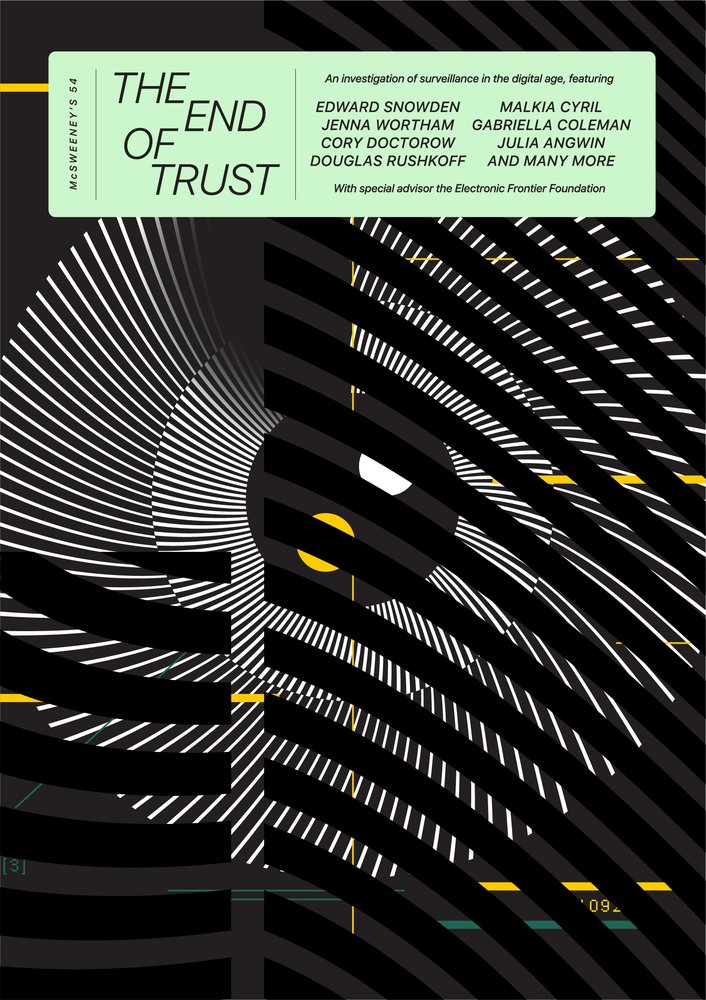
The End of Trust (McSweeney’s 54) is the first-ever non-fiction McSweeney’s issue and features an impressive collection of brilliant and highly pertinent essays and interviews discussing technology, privacy, and surveillance. Underscoring how something somewhere along the line went very wrong, expert contributors including several core EFF members, e.g. Cindy Cohn and Bruce Schneier, journalists like Julia Angwin, whistleblower Edward Snowden, and many others both educate, inspire, discuss, and contemplate the fleeting and increasingly challenged notion of privacy and digital trust. The whole issue is freely available here. 317 pages.
Standing up for a better technological world is harder, but also more important, in a society where trust has been eroded, battered, and devalued. — Cindy Cohn, Executive Director of the Electronic Frontier Foundation, on the importance of not succumbing to privacy nihilism.
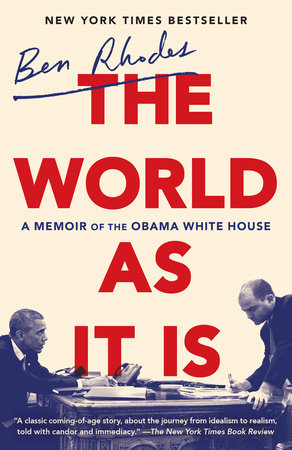
The World As It Is: Inside the Obama White House is written by Ben Rhodes who originally joined Obama’s first presidential campaign, and otherwise remained a trusted, steadfast aide throughout the subsequent eight years. As such, Rhodes presents a unique voice with a keen understanding of the inner workings of the Obama White House—first as a speech-writer, then as a deputy national security advisor, and, towards the end, as a multi-purpose aide and close collaborator. What is more, he writes in a refreshingly vivid and novelistic manner; ultimately presenting what feels like an honest account of both the frustrations experienced and the victories celebrated.
The book highlights a number of defining events throughout the two Obama terms; ranging from the turmoil of the Great Recession to the assassination of Osama bin Laden. One event in particular overlapped both terms and proved an immense quandary domestically and abroad: the Arab Spring. With tens of millions of lives at stake, Obama sided with the people, but was curtailed in his response by both internal pressure and a minority in the House. Many events tied to the Arab Spring, however, each requiring a speech. And while the words sometimes mattered little back home, they ultimately had a massive, and often lasting, impact on everyone else. This, Rhodes argues, underscores the true importance of words: They can inspire and energise; recognise injustices and give hope. And sometimes, words are all you can give.
Obama’s second term followed a bitter election against Mitt Romney during which the world witnessed the first real taste of the propaganda machine that is Fox News. The beginning of the second term also concluded the journey from idealism to realism: Rhodes notes how many policies appeared to have lost the edge they once had; how fellow staffers were lacking the drive they once had. Paradoxically, as realism entered the White House, conspiracy theories flourished in public. Fuelled in large part by social media, conspiracy theories eventually entered the now GOP-controlled Senate and House. A development which perhaps kick-started what ultimately ended in a deadlocked legislative process and a hamstrung president. Despite these and many other challenges, Rhodes reminiscences on the good that the Administration accomplished. It was not perfect, nor was all the work finished, but they, in his eyes, got far nonetheless. 480 pages.
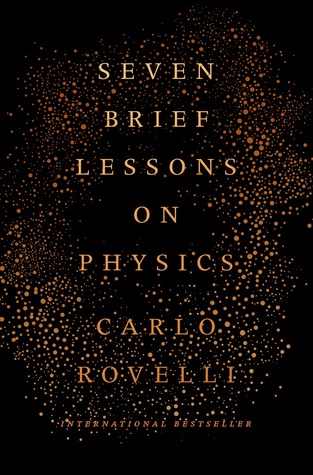
Seven Brief Lessons on Physics by Carlo Revelli serves as a brief and accessible book which introduces the reader to seven key components of modern day physics. Arguably, this is hardly the book to read if you wish to actually learn about modern physics, but its engaging—almost joyful—storytelling should prompt anyone unfamiliar, yet marginally inspired, to seek more knowledge about physics. Which, I suppose, is exactly what Revelli hopes to accomplish. As such, if you have not dabbed in physics before, this is definitely a good place to start. It is more interesting than it might sound! 81 pages.
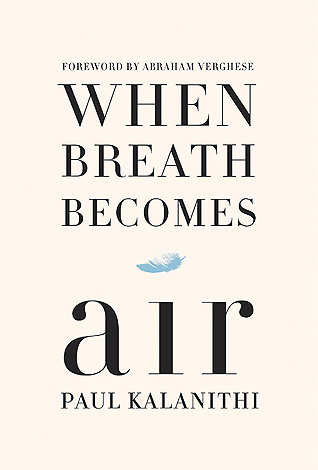
When Breath Becomes Air by the late Dr. Paul Kalanithi is a gripping, utterly heart-wrenching and yet strangely life-affirming memoir of a passionate, hard-working neurosurgeon who, at the peak of his professional and personal life, is faced with terminal stage four lung cancer. With the core of his identity shaken, no longer knowing who he is or what he wants, Dr. Kalanithi seeks to reinvent himself. What, he asks, makes life worth living in the face of death? There is much to be said about When Breath Becomes Air, but, honestly, it needs to be read. 201 pages.
I began to realise that coming face to face with my own mortality, in a sense, had changed nothing and everything. Seven words from Samuel Beckett began to repeat in my head: I can’t go on. I’ll go on. — Dr. Paul Kalanithi after receiving his diagnosis.
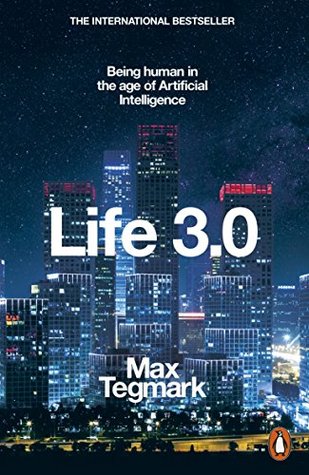
In Life 3.0, Max Tegmark welcomes the reader to the most important conversation of our time we should already be having, but not yet seriously are: How do we handle the (potential) rise of artificial general intelligence? Tegmark defines intelligence as the ability to accomplish complex goals—something which inexorably links intelligence to goal attainment. As such, Tagmark argues, we cannot measure intelligence with a single metric, but rather using an ability spectrum across all goals. The artificial intelligence solutions of today are narrow, accomplishing very specific goals; e.g. YouTube’s recommendation engine recommending relevant videos in order to extend each session as to optimise advertisement revenue. In comparison, human intelligence is remarkably broad. However, memory, computation, learning, and intelligence all have an abstract intangible, and ethereal feel to them because they are independent of physical substrate: They can take on a life of their own which does not depend on nor reflect the details of their underlying material substrate. Consequently, any matter can be computronium—the substrate for computation—as long as it contains certain universal building blocks that can be combined to implement any function.
The above definitions mean that we can define a computation as a transformation of information. As technology advances, and the cost of information technology dwindles, we are fast on track to enter the third instalment of intelligent life: Artificial general intelligence, or AGI. While the continuum of predictions as to whether humanity can actually devise a machine truly capable of general intelligence is vast, the chance remains non-zero. Indeed, as Tegmark argues, it is reasonable to assume that we are already able to simulate the equivalent of human intelligence in FLOPS. As such, considering the current pace of development, the need to transparently discuss and seriously consider possible outcomes is now. In other words; we need to start thinking about which type of outcome we would prefer.
In many ways, the only real restrictions on AGI will be those imposed by the law of physics. We cannot seriously consider ourselves even remotely capable of guarding against potential breakouts because any AGI can exploit things which we humans cannot even imagine. Of course, this all but ignores the risks posed by conventional methods like social engineering or buffer overflows; methods which it would master anyway. In an elaborate exercise of creative thinking, Tegmark presents a number of possible outcomes, including both a libertarian utopia, a benevolent AGI dictator, and intricate gatekeeper solutions with AIs controlling AIs. While there is absolutely no consensus as to how AGI development will commence, nor which output will be generated and how that necessarily will impact humanity, each of the suggested outcomes makes for an interesting, if at times frightening, thought-experiment.
In line with Tegmark’s goal-rooted definition of intelligence, any of the proposed outcomes will, ultimately, be a result of the AGI’s (pre)defined goal(s). Nature strives to maximise entropy until everything eventually is perfectly distributed in a uniform matter; no complexity, no life, and no change. However, a living organism is an agent of bounded rationality in that it does not pursue a single goal, but rather adheres to rules of thumb for what to pursue and avoid. In the case of humans, our behaviour is not even strictly optimised for the survival of our species. This, Tegmark argues, can be boiled down to the lack of a single, well-defined goal shared by all humans. In the context of machines, things are very different and inherently goal-oriented. As such, the more intelligent machines, the more important it becomes that we have aligned goals, which means making the system (a) learn our goals; (b) adopt our goals; and (c) retain our goals. If we do not accommodate this adequately, chances are the AGI will devise its own goals which will not necessarily align with those of humanity. This challenge applies regardless of which outcome we wish to produce, and thus presents the foremost problem we ought to rigorously debate. Indeed, as Tegmark notes, we are the guardians of the future of life now as we shape the age of AI. 364 pages.

Riot Days by Pussy Riot’s Maria ‘Masha’ Alyokhina is a raw, riveting, and deeply passionate account of the cost of standing up for freedom and democracy in a country where neither is available. In February 2012, Pussy Riot performed in Moscow’s Christ of the Saviour Cathedral in protest of both the Orthodox church itself as well as Vladimir Putin’s authoritarian regime.
And for this, Alyokhina and the other members of Pussy Riot were charged with organised hooliganism motivated by religious hatred. Following a brief but intense period on the run, Alyokhina was ultimately caught and subsequently jailed following an absurd trial brilliantly portraying the hopelessly corrupt Russian criminal justice system.
She then accounts her two years of imprisonment through several equally remote and brutal penal camps. Yet, despite the circumstances and in the face of ruthlessness, Alyokhina courageously cried for justice and never stopped. Indeed, she proved an incredibly strong-willed political prisoner who refused to be deprived of her humanity. In fact, her continued refusal to back down, and her insistence on her right to say no, ultimately delivered an unprecedented victory for prisoner’s right across Russia.
Above all, Alyokhina has a simple yet powerful message to the reader: freedom and democracy is not to be taken for granted, and neither can exist unless it is fought for every single day. What has happened in Russia can happen anywhere. Indeed, the global rise of authoritarianism only makes her warning more dire. 195 pages.
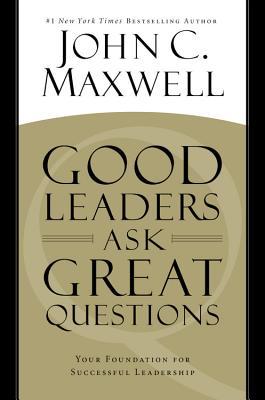
Good Leaders Ask Great Questions: Your Foundation for Successful Leadership by John C. Maxwell is one of those books whose title aptly summarises the entire book. Indeed, while Maxwell takes the reader through what, in his mind and experience, makes a successful leader, the entire process can largely be summarised as asking questions and listening to answers. Of course, knowing what to ask and how to ask are two equally important components. Yet, a simple why is often the most effective question of them all.
The book is split into two parts; the first covering questions Maxwell himself asks, and the second and longer part covering questions other leaders have asked Maxwell. The core message of being open, accessible, curious, and honest is repeatedly accentuated. And with good reason; the importance of those qualities cannot be understated. Ask, listen, ask, listen, and then ask and then listen some more. 320 pages.
Good leaders cultivate themselves through personal growth. They also cultivate relationships and grow teams. That too can be slow and difficult work. It usually takes longer than we expect and it’s harder than we hope. But there is no such thing as solitary success. Nothing of significance was ever achieved without people working together. — John C. Maxwell on what makes a good leader.

The central point the late Hans Rosling seeks to underscore in Factfulness: Ten Reasons We’re Wrong About the World - and Why Things Are Better Than You Think is the fact that, generally, things are much better than what we are otherwise inclined to believe. Indeed, what we are told to believe. The notion of developing and developed countries, for instance, is no longer applicable with the vast majority of humanity having entered a global “middle-class”. In fact, things are getting better across many parameters. Our inclination to believe otherwise is largely due to what Rosling dubs the negativity instinct. This encapsulates how we misremember the past, how the media is selective in its reporting, and how we struggle with acknowledging how some things are good when others remain bad. The latter point is especially problematic because things can be bad whilst still improving, and we need to recognise that improvement.
Another central point Rosling seeks to make is the need to not only critically examine what we read, but also how we read, interpret, and discuss it. Journalists, for instance, tend to exploit our basic fear instinct in an endless pursuit of generating page-views. This heavily skews our perception of reality. Similarly, generalisations and incorrectly used statistics muddy our understanding and appreciation of how the world is actually developing. Ultimately, as Rosling notes, a fact-based life is useful the same way an accurate GPS is useful in navigating. Indeed, Factfulness leaves the reader appreciating both the positive advancements already achieved, as well as the many challenges ahead—several of which are already being seriously worked on. 352 pages.
Onwards to 2020!
